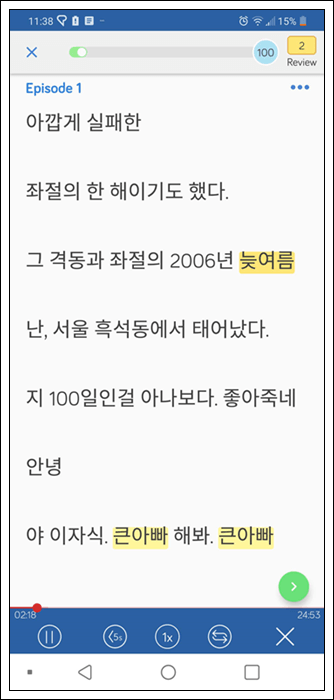An Easy Guide About Family Members in Korean
Family is a very important factor in Korean culture. Large family gatherings are very common on big holidays like Lunar New Year and even up until a few decades ago, it was common for several generations of families to live together under one roof. In this post, I’ll go over the different names of family members in Korean.
Parents and grandparents
부모님 [Boo-mo-nim]: Parents
조부모님 [Jo-boo-mo-nim]: Grandparents
할아버지 [Hal-ah-buh-ji]: Grandfather
할머니 [Hal-muh-ni]: Grandmother
아버지/아빠 [A-buh-ji/Appa]: Father/Dad
어머니/엄마 [Uh-muh-ni/Omma]: Mother/Mom
아들 [A-dul]: Son
딸 [Ddal]: Daughter
Note that there are different ways to address your parents, similar to saying ‘father’ or ‘dad’ in English. The first titles listed (아버지/어머니) are formal ways to call your parents and the second ones (아빠/엄마) are more casual.
Siblings
Age and gender become important factors when choosing how to address your siblings in Korean. For instance, younger siblings do not call their older siblings by their names. Instead, they use specific titles to call them (older siblings can still call their younger siblings by names though). Titles to address older male and female siblings also vary by gender.
남매 [Nam-mae]: Brothers and sisters (mixed gender)
형제 [Hyung-jae]: Brothers
자매 [Ja-mae]: Sisters
언니 [Un-ni]: Older sister (used by a younger female sibling)
누나 [Nu-na]: Older sister (used by a younger male sibling)
오빠 [Oppa]: Older brother (used by a younger female sibling)
형 [Hyung]: Older brother (used by a younger male sibling)
Extended families
Extended family members have a specific title depending on how close they are to you and also whether or not they are on your mother’s side or the father’s side. Titles can get even more complicated if you are married, as you will have to memorize all the specific titles for your in-laws as well! Don’t worry, for now, I will only talk about immediate family member titles.
Mother’s side
이모 [Imo]: Your mother’s sister (aunt)
이모부 [Imo-boo]: Your mother’s sister’s husband
삼촌 [Saam-chon]: Your mother’s brother (uncle)
숙모 [Sook-mo]: Your mother’s brother’s wife
Father’s side
고모 [Go-mo]: Your father’s sister (aunt)
고모부 [Go-mo-boo]: Your father’s sister’s husband
큰아버지 [Kun-a-buh-ji]: Your father’s older brother (uncle)
큰어머니 [Kun-uh-muh-ni]: Your father’s older brother’s wife
작은아버지 [Jakun-a-buh-ji]: Your father’s younger brother (uncle)
작은어머니 [Jakun-uh-muh-ni]: Your father’s younger brother’s wife
(If your father’s sibling is unmarried, sometimes they can be addressed as ‘삼촌’ too)
사촌 [Sa-chon]: Cousin (in general)
조카 [Jo-kah]: Niece/Nephew (gender-neutral)
You can apply some of the previously-mentioned rules and titles for some of these too. For example, you can call your 큰아버지 (father’s older brother), 큰아빠 (casual version of the title) depending how close you are with your uncle. Another example would be calling your older cousin 사촌언니/누나/형/오빠 (sibling titles). In Korea, cousins are considered siblings too and you would use the same titles to address your cousins as you would for your siblings.
Dramas to help you learn family members in Korean
Yes, things can get complicated. That’s why you need to put in some time in your Korean studies to get things right. To help you with your studies, here are some Korean TV shows about family that can help you learn faster.
거침없이 하이킥! High Kick!

High Kick! Is a sitcom series about the Lee family, whose 3 generations live under the same roof altogether. You will be able to observe how specific family titles are used in real life, at the same time enjoy some hilarious comedy.
넝쿨째 굴러온 당신 My Husband’s Got a Family

My Husband’s Got a Family features a story of Yoon-hee and her husband who was put up for adoption when he was young. As her husband reunites with his biological parents, Yoon-hee faces the unexpected burden of having to build a relationship with her newly found in-laws. Learn Korean family member titles as Yoonhee gets to learn about her own!
P.S. If you are interested in finding out what other Korean dramas are good for studying, check out my other post:
The Best Korean Dramas for Intermediate Language Learners.
Using LingQ to make your Korean studies more efficient
Let’s say you want to learn Korean using the drama I mentioned just now, High Kick. Using LingQ, you can import the transcript and audio and create a better learning experience. All you need to do is download the LingQ browser extension and head to Viki. Click the import button and you’re ready to go!

Check this out.

LingQ is the best way to learn Korean since it allows you to import content you love and create lessons out of them. You can save your favourite dramas, songs, blog posts, and so much more into LingQ and get quick access to your study material. Also, LingQ comes with a variety of dictionaries which allows you to easily look up vocabulary. Save them and review them using LingQ’s SRS system.

Last but not least, LingQ is available on mobile. Take your lessons wherever you go and listen to your target language, read your transcripts, and create review flashcards. LingQ’s language learning apps are available for both Android and iOS.

Short Writer Bio:
Julie Yoon has been teaching Korean and English for ten years. She has been learning French as a third language.


